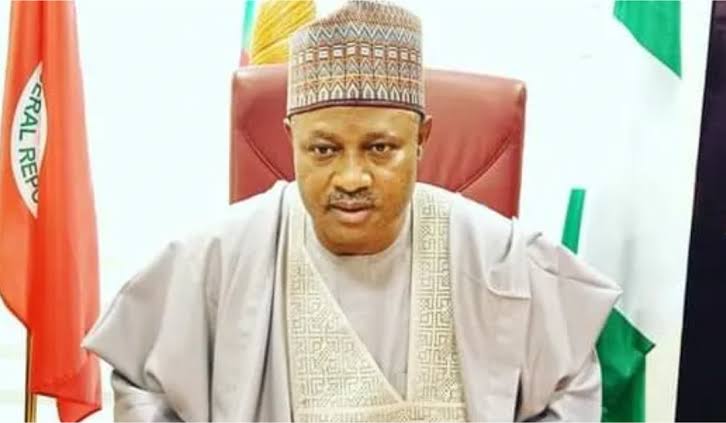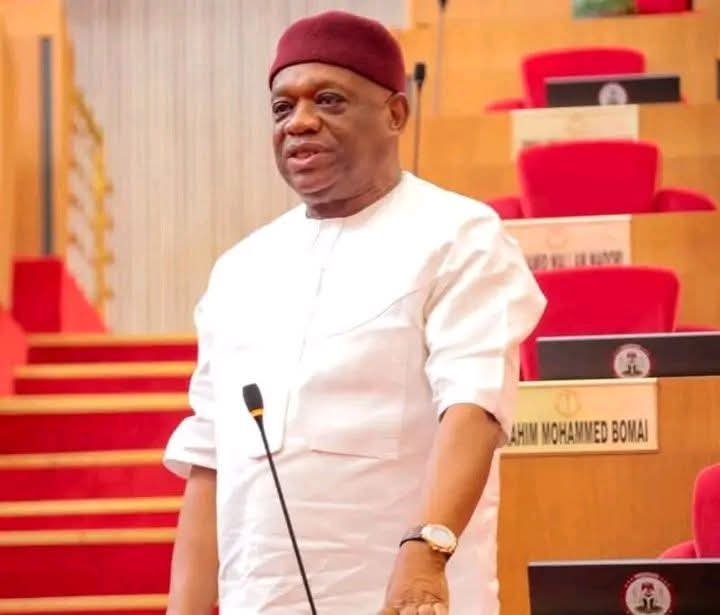Governor Uba Sani of Kaduna State has criticized Nigerian politicians for engaging religious leaders only during election periods and abandoning them immediately after securing electoral victories.He
issued the remarks on Monday during an interactive session with religious and traditional leaders held in Kaduna.
The Governor condemned the practice of political actors exploiting religious sentiments and clerical influence to win elections, only to neglect these same leaders once in power. According to him, such actions are detrimental to peace, unity, and good governance, especially in a state like Kaduna, where religious diversity plays a crucial role in social cohesion.
“We are elected, and we only remember them when it is a month or two to elections,” Governor Sani said. “We go to them using sentiments, using religion so that they can support us.”
He warned that the disregard for religious leaders after elections sends a dangerous message about the role of religion in national development. He stressed that these leaders are not only spiritual guides but also key stakeholders in peacebuilding and governance across the country.
“I always say, if we allow our religious leaders to be insulted, to be condemned unnecessarily, we will not have a country, much less a state,” the Governor stated. “Whenever things are bad, we go to them for prayers.”
Governor Sani expressed deep concern about how politicians appear to only value religious leaders for political gain. He emphasized that their role should extend far beyond the election season and that their guidance is needed consistently to ensure good governance and the wellbeing of citizens.
“Religious leaders are important stakeholders in our country, so we believe that we need you now to guide us and not to rush to you only during elections,” he said.
He noted that upon assuming office, he sought the counsel of religious leaders in the state on how to foster peace and unity, which he said has significantly contributed to the success of his administration. He credited them with providing invaluable guidance on how to navigate challenges in key areas such as security, education, healthcare, and social development.
“That is why I am here to explain to you what we have done in the last two years, in the area of security, education, healthcare and social security, since we came into office,” the Governor stated.
He highlighted the success of the “Kaduna Peace Model,” a non-kinetic approach to conflict resolution, which he said is now being emulated by other states in the country. Governor Sani stressed that this model could not have been achieved solely by the government but was made possible through collaboration with religious and traditional leaders.
According to him, the strategy prioritizes dialogue and community engagement over the use of force in addressing social tensions and insecurity. He reiterated that sustainable peace cannot be achieved without the support and involvement of those who hold moral authority within society.
Governor Sani also addressed recent trends where some politicians allegedly use social media to attack and malign religious figures. He condemned such actions and described them as dangerous and irresponsible, warning that they pose a threat to national unity and undermine efforts at peaceful coexistence.
He called on political actors to exercise restraint and show respect to religious institutions and their leaders, irrespective of political or ethnic differences.
“Some politicians even conspire with unscrupulous elements to smear the reputations of some religious leaders on social media,” he said.
The Governor’s comments come at a time when public trust in political leadership is under increasing scrutiny. In states like Kaduna, where ethnic and religious sensitivities are high, the role of religious leaders in mediating peace and fostering understanding is seen as especially vital.
Sani’s address was well received by many of the religious and traditional leaders in attendance, some of whom echoed his sentiments about the need for continuous dialogue and cooperation between the government and faith-based institutions.
As Kaduna State prepares for future political cycles, the Governor urged politicians to discard exploitative tactics and instead build long-term partnerships with religious leaders for the overall development of society.





